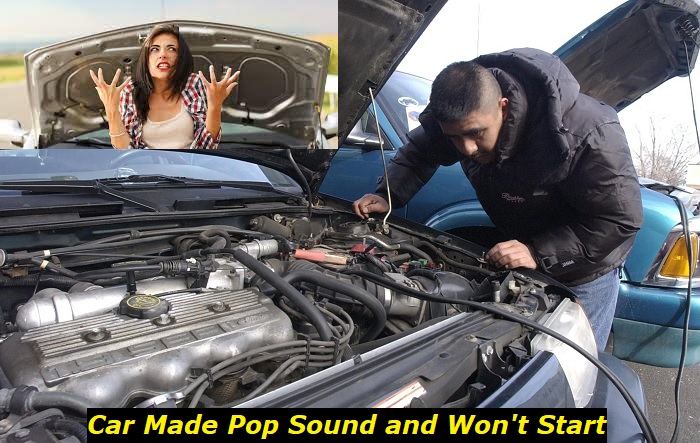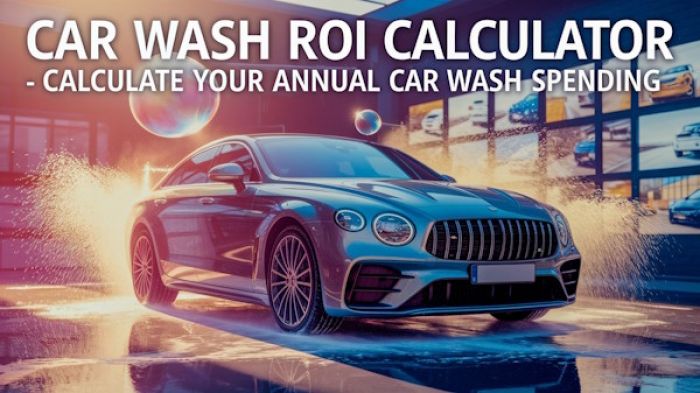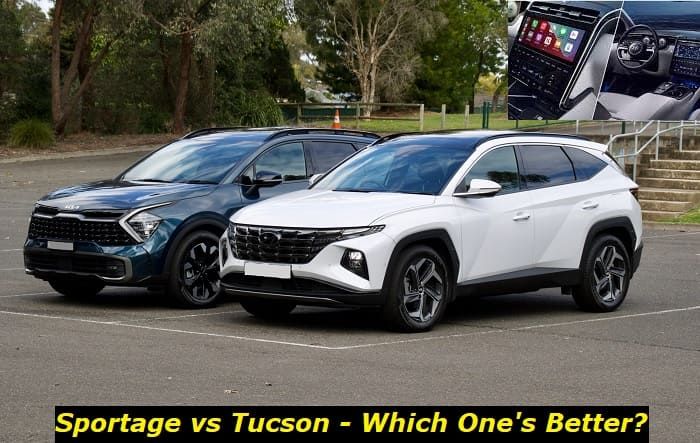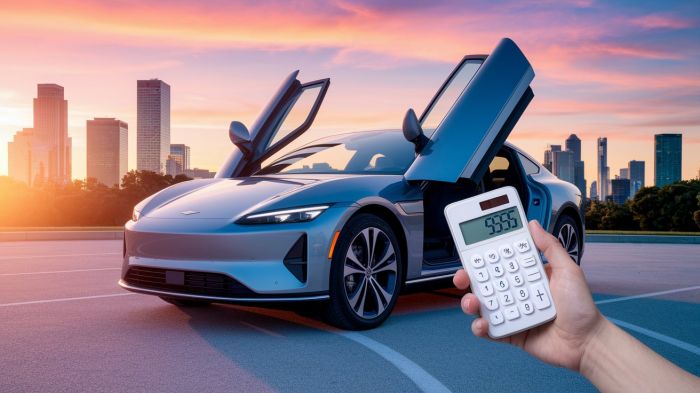You're set to head out. You get into your car to start it. It makes a pop sound, and then it doesn't start. Such a frustrating occurrence has been the experience of many people. But what causes this?
If your car gives a pop sound but doesn't start, it could be due to a problem with the ignition, fuel system, timing belt, or alternator. Proper diagnosis will reveal the main problem and help you decide on a solution.

This article will discuss these problems in greater detail and help you better understand how your car works.
Car Made a Pop Sound and Now Won't Start - Explaining Possible Causes
As earlier mentioned, your car making a pop sound and failing to start could be due to problems with:
- the ignition system,
- the fuel system,
- the timing belt,
- alternator issues
- overheating
Let's discuss them in greater detail.
Problems With the Ignition System
If your car isn't starting after a pop sound, one of the most likely culprits is the ignition system. The ignition system is one of the most important parts of your car.
Failure to start may mean that one or more component parts of your ignition system may be faulty. These parts include the ignition coil, spark plugs, or distributor cap.
- Ignition Coil: The ignition coil converts the battery's low voltage to a high voltage so that the spark plugs can create a spark. Damage to the ignition coil would result in a weak or no spark.
- Spark Plugs: Spark plugs ignite the air-fuel mixture in each cylinder of the engine, providing the necessary combustion for the car to start. Over time, spark plugs can wear out or become fouled with carbon deposits, preventing them from generating a strong spark.
- Distributor Cap: In older vehicles with conventional ignition systems, the distributor cap distributes high-voltage electricity from the ignition coil to each spark plug wire. If the distributor cap cracks or wears out, it can cause electrical arcing or crossfire between terminals, leading to engine starting issues.
How to Know Your Ignition System is Faulty
A fault ignition system will give you many signs. Noticing these signs in time can help you take prompt action. If you ignore them, your car will eventually not start at some point.
Here are some of the signs:
- Engine misfires: If you notice your engine sputtering or running unevenly, there could be a problem with the ignition system.
- Backfiring: A loud pop or bang from the exhaust or intake manifold during starting or acceleration may also indicate ignition problems.
- Stalling: If your car stalls frequently, especially when idling or at low speeds, it could be due to an ignition system malfunction.
Problems With the Fuel System
The fuel system delivers fuel to the engine for combustion. Problems with the fuel system can impede the fuel delivery, and lead to several issues, including starting issues.
Many things can go wrong with the fuel system, including the following:
- Clogs in the fuel filter: The fuel filter removes impurities from the fuel before it reaches the engine. Over time, it can become clogged with debris, preventing an adequate flow of fuel. This can cause the engine to misfire or develop starting issues.
- Fuel pump failure: The fuel pump sends fuel from the tank to the engine. If it malfunctions or fails, it can lead to reduced fuel supply to the engine and also lead to failure to start.
- Fuel injector problems: Fuel injectors ensure that precise amounts of fuel get into the engine's combustion chambers. When these injectors become clogged or fail, they may not deliver the correct amount of fuel required for ignition.
How Problems with the Fuel System Can Affect Your Car
The fuel system problems mentioned above can disrupt the proper fuel delivery to the engine in several ways:
- Insufficient fuel supply: A clogged fuel filter or a failed fuel pump can limit or completely cut off fuel supply to the engine. Consequently, the engine will struggle to start and may produce a popping sound as it attempts to ignite.
- Inconsistent Fuel Pressure: Fuel injectors need a consistent fuel pressure to deliver the correct amount of fuel into the combustion chambers. A problem with the fuel pump or a clogged fuel line can result in inconsistent fuel pressure.
- Improper fuel-air mixture: When fuel injectors become clogged or fail, they may not deliver the correct amount of fuel into the combustion chambers. This can disrupt the ideal fuel-air mixture required for ignition, leading to misfires and a popping sound when starting the car.
Problems with the Timing Belt or Chain
The timing belt or chain synchronizes the rotation of the crankshaft (which controls the pistons) with the camshaft (which controls the valves).
This synchronization ensures that the valves open and close at the correct time in relation to the movement of the pistons.
When a timing belt or chain fails, it disrupts the synchronization between the crankshaft and camshaft. This can result in several problems, including failure to start.
These problems include:
- Valve interference: In some engines, when the timing belt/chain breaks or slips, it can cause the valves to remain open while the pistons are still moving. Consequently, the collision creates a loud popping sound as metal components forcefully come into contact with each other.
- Engine misfire: A broken or slipped timing belt/chain can also cause the engine to misfire. Without proper synchronization, the valves may not open and close at the correct time, leading to a disruption in the combustion process. This can result in a pop sound as unburned fuel ignites in the exhaust system.
- Loss of Compression: When the valves and pistons are not synchronized, they may not seal properly, allowing air to escape from the combustion chamber. This loss of compression can prevent the engine from starting or cause it to run poorly.
How to Know the Timing Belt is Faulty
Recognizing early signs of timing belt problems can help prevent further damage. Some common indicators include:
- Engine misalignment: If your engine is running unevenly or vibrating excessively, it could be a sign of a worn or damaged timing belt/chain.
- Ticking or slapping noises: Unusual ticking or slapping noises coming from the engine compartment may indicate a loose or worn timing belt/chain.
Alternator Issues
The alternator is responsible for generating electricity. It also charges the battery while the engine is running. When the alternator malfunctions, it can lead to various electrical issues, including failure to start.
One possible reason for the pop sound is a sudden discharge of stored electrical energy when the alternator fails. This discharge can create a popping or clicking noise as the electrical components attempt to function without sufficient power.
Also, if the alternator fails completely, it may not provide enough power to start the engine, resulting in a no-start condition.
How to Know Your Alternator is Faulty
Some common indicators of a faulty alternator include:
- Dim or flickering lights: If your headlights, dashboard lights, or interior lights appear dim or flicker while driving, it could be a sign of alternator malfunction. The alternator's inability to provide a consistent power supply can cause fluctuations in lighting.
- Battery warning light: Modern vehicles have a battery warning light on the dashboard. If this light illuminates while driving, it indicates a problem with the charging system, which could be related to the alternator.
Overheating
Overheating is another cause of engine starting problems. Overheating can lead to several issues that prevent your car from starting.
They include:
- Engine damage: Overheating can cause damage to parts of your engine. When the temperature rises above regular limits, metal parts will expand and lead to warping or cracking. This can affect parts like the piston, cylinder head, or engine block.
- Coolant loss: Coolant helps regulate temperature by absorbing and dissipating heat. Overheating can put a strain and cause the coolant to leak or evaporate. The loss of heat regulation function can cause further damage to the engine and lead to starting problems.
- Electrical system malfunction: Overheating can cause damage to electrical wires and connectors, leading to short circuits and disruptions. This can lead to the malfunction of electrical systems like the ignition or fuel pump.
- ECU protective mode: Overheating can trigger the engine control unit to enter a protective mode. When in protective mode, the ECU limits engine performance to protect it from further damage. When the temperature has cooled to acceptable levels, the ECU deactivates the protective mode and restores the engine to normal function.
Other Problems
While the problems mentioned above are the most prominent causes of cars making a pop sound and not starting, many other issues could also be responsible for this problem.
They include:
- electrical issues
- mechanical damage to other engine parts
A proper check will help you identify the problem so that you can fix your car accordingly.
Takeaway
It can be a frustrating experience when your car fails to start. If it makes a pop sound and then fails to start, then it could be due to any of the following reasons:
- the ignition system,
- the fuel system,
- the timing belt,
- alternator problem,
- alternator issues, and
- overheating
A proper diagnosis will help you decide how to fix the problem.
About the authors
The CarAraC research team is composed of seasoned auto mechanics and automotive industry professionals, including individuals with advanced degrees and certifications in their field. Our team members boast prestigious credentials, reflecting their extensive knowledge and skills. These qualifications include: IMI: Institute of the Motor Industry, ASE-Certified Master Automobile Technicians; Coventry University, Graduate of MA in Automotive Journalism; Politecnico di Torino, Italy, MS Automotive Engineering; Ss. Cyril and Methodius University in Skopje, Mechanical University in Skopje; TOC Automotive College; DHA Suffa University, Department of Mechanical Engineering






Add comment